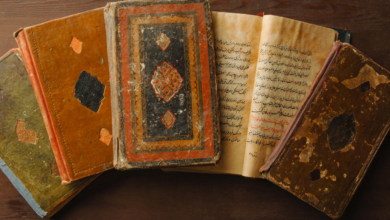
Dreams interpretation in Islam
In Islam, dreams are considered a form of communication from Allah (God). They can provide guidance, warnings, or insights into one’s life and future. Understanding and interpreting dreams is an important aspect of Islamic spirituality.

Introduction
Dreams have always intrigued humanity. They can be mysterious, vivid, and at times, even prophetic. In Islam, dreams hold a significant place as they are believed to be a means through which God communicates with His servants. Dream interpretation in Islam is a profound and ancient practice that seeks to decode the hidden messages and guidance that dreams may carry. In this article, we will delve into the world of dreams interpretation in Islam, exploring its significance, methods, and the role it plays in the lives of Muslims.
The Significance of Dreams in Islam
Islamic tradition places great importance on dreams as a form of divine communication. Prophet Muhammad (peace be upon him) said, “A good dream vision of a pious person is a forty-sixth part of prophecy.” This hadith highlights the belief that dreams can offer glimpses of the future or provide guidance in various aspects of life.
In Islam, dreams can serve several purposes:
- Spiritual Guidance: Dreams can provide Muslims with guidance on religious matters or personal struggles. They can offer insights into how to lead a more righteous and fulfilling life.
- Warnings: Some dreams are believed to be warnings from God, alerting individuals to potential dangers or sins they need to avoid.
- Reassurance: Dreams can also be a source of comfort and reassurance during difficult times. They may show glimpses of paradise, the presence of angels, or divine protection.
Methods of Dreams Interpretation in Islam
Interpreting dreams in Islam involves a mix of traditional methods, symbolism, and reliance on the guidance of knowledgeable individuals. Here are some key methods used in Islamic dream interpretation:
- Seeking Knowledgeable Interpretation: One of the most common methods is to consult scholars or individuals who are well-versed in Islamic dream interpretation. These interpreters use their knowledge of Islamic teachings and symbolism to decipher the dream’s meaning.
- Reference to the Quran and Hadith: Dream interpretations often draw from Quranic verses and Hadith (sayings and actions of Prophet Muhammad). Many symbols and their meanings can be found in these sources.
- Personal Reflection: Individuals are encouraged to reflect on their own feelings and emotions during the dream. How they felt and the context of the dream can provide important clues.
- Prayer and Supplication: Muslims are encouraged to seek God’s guidance and protection through prayer and supplication. This can be done before sleep or after experiencing a significant dream.
- Understanding Symbolism: Dreams in Islam often involve symbolism. For example, water may represent knowledge, while falling can symbolize a fear of failure or sin. Understanding these symbols is crucial for interpretation.
Also Check
Interpreting Common Symbols
While interpretations can vary, some symbols in Islamic dream interpretation are commonly understood. Here are a few examples:
- Water: Water often symbolizes knowledge, purity, and blessings.
- Snakes: Snakes are generally seen as negative symbols, representing deception or enemies.
- Birds: Birds may symbolize good news or divine messages.
- Flying: Dreaming of flying can represent liberation or freedom from worldly constraints.
- Falling: Falling may indicate fear, anxiety, or the need for spiritual grounding.
Conclusion
Dream interpretation in Islam is a rich and meaningful tradition that provides insight into the spiritual realm. It serves as a means of guidance, comfort, and self-reflection for Muslims. However, it’s essential to approach dream interpretation with caution and consult knowledgeable individuals, as misinterpretation can lead to misunderstanding and confusion.
Ultimately, dreams in Islam are seen as a gift from God, and their interpretation is an art that requires both spiritual insight and a deep understanding of Islamic teachings. They serve as a reminder that God’s guidance and wisdom are not limited to waking hours but can also be found in the realm of dreams.

FAQs about Dreams Interpretation in Islam
What is the significance of dreams in Islam?
In Islam, dreams are considered a form of communication from Allah (God). They can provide guidance, warnings, or insights into one’s life and future. Understanding and interpreting dreams is an important aspect of Islamic spirituality.
Who can interpret dreams in Islam?
Dream interpretation in Islam is a specialized skill. Scholars or individuals with knowledge of the Quran and Hadith, as well as a deep understanding of Islamic jurisprudence, are often considered qualified to interpret dreams. It is not recommended for ordinary individuals to interpret dreams without proper knowledge.
Are all dreams meaningful in Islam?
While all dreams have some meaning, not all dreams are necessarily prophetic or significant. Some dreams are simply the result of one’s thoughts and experiences. In Islam, importance is given to those dreams that are vivid, repetitive, or have a clear spiritual or prophetic message.
Can dreams be influenced by external factors like food or emotions?
Yes, external factors such as what you eat, your emotional state, and your surroundings can influence your dreams. In Islam, it is believed that consuming certain foods or engaging in specific activities before sleep can affect the nature of your dreams.
Is it permissible to share dreams with others in Islam?
It is generally encouraged to share good dreams with loved ones, as they can serve as a source of joy and inspiration. However, bad dreams or those with a negative connotation should not be disclosed, unless seeking advice or interpretation from a knowledgeable person.
How can I distinguish between a regular dream and a prophetic dream in Islam?
Prophetic dreams in Islam are often vivid, clear, and leave a lasting impression. They may also be repetitive. Seeking guidance from a qualified Islamic scholar or dream interpreter is the best way to determine if a dream is prophetic.
Can dreams serve as a source of guidance for personal decisions in Islam?
Yes, dreams can be a source of guidance in Islam, especially when they offer insights into one’s personal life or decisions. Muslims are encouraged to seek advice and interpretation from qualified individuals to better understand the message conveyed in their dreams.
Are there any specific symbols or signs that have universal meanings in Islamic dream interpretation?
Islamic dream interpretation often involves considering symbols, but the meaning of symbols can vary. For example, certain animals or colors may have different interpretations depending on the context of the dream. A qualified interpreter should be consulted for accurate guidance.
Are there any guidelines for seeking interpretations of dreams in Islam?
Yes, when seeking interpretation, it is important to approach knowledgeable and trustworthy individuals. It is also recommended to offer gratitude to Allah for the dream, whether it is perceived as good or bad, as it is believed that there is wisdom in every dream.
What should I do if I have a recurring dream in Islam?
Recurring dreams may carry a significant message. In Islam, it is advisable to seek interpretation from a qualified scholar or dream interpreter, as they may help uncover the underlying message or lesson that Allah is conveying through the repetition of the dream.






